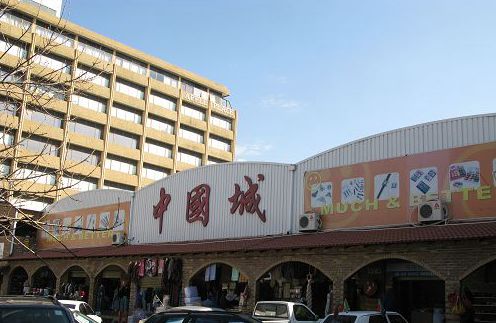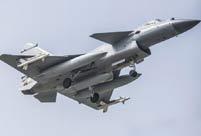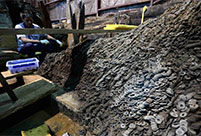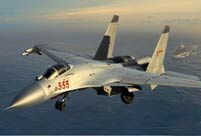

Africa stands poised to transform into a global economic powerhouse soon. The land is rich in natural resources with a young population. Africans are eager to get more educated, better trained and ready to build more reliable infrastructure.

South Africa is the most developed nation on the continent and a major draw for Chinese investors and traders looking to base operations here to expand further afield in the vibrant region.
Johannesburg will host the Forum on China-Africa Cooperation (FOCAC) on Dec. 4-5 to address measures to enhance the industrialization and modernization of the sub-Sharan region.
South Africa's Department of Trade &Industry (DTI) has good reason to support FOCAC. DTI announced last week that over 16 South African companies signed 20 contracts with Chinese companies at a combined valued of over $US913 million.
SA gets value-added boost
China has long embarked on a manufacturing-based; export-driven economy. Chinese companies had relied on importing raw materials to manufacture value-added products from its factories. The strategy has proven effective and South Africa would like to follow a similar mode of production.
Yet, SA holds a significant advantage, since it already has plenty of natural resources. Chinese companies plan to increase investments in South Africa's manufacturing sector, while Beijing's 21st Maritime Silk Road would strengthen roads, railways, power generation and airports in the country.
"Both countries agreed that China would increase its sourcing of value-added products from South Africa in order to improve the structure of trade between the two countries," said a DTI press release.
Overcoming power outages
South Africa would struggle to emerge as a major manufacturing nation in the midst of frequent rolling blackouts. Hence, its government is pouring substantial funds into constructing eight new nuclear power plants, as reported by the China Post.
Chinese and South African nuclear regulators have recently signed a technical agreement on matters that include, "licensing procedures, vendor inspections, inspector training, joint inspections and technical support."
"Bilateral cooperation arrangements such as these serve as a valuable mechanism for ensuring that (South Africa's) NNR (National Nuclear Regulator) regulatory practices are benchmarked against the current standards and practices as applied internationally with the nuclear energy," said NNR CEO Bismark Tyobeka.
Cheers to Western Cape wine
There's much ado about South Africa's natural resources and mining sector, but it's also recognized for having flourishing vineyards located in the Western Cape Province. South African wine exports to China have increased rapidly, surging to over 11 million liters in 2014.
Provincial government and trade officials had just visited China earlier this month to encourage companies to invest in the regional wine sector and to launch a publicity campaign for Chinese wine lovers.
"We have doubled our market share and our value share is up 104 percent," Alan Winde, Western Cape's Economic Opportunities Minister told Xinhua. "We aim to double the exports of wine to China by 2025. If the current trend continues, I am confident we will reach that goal."
The wine industry employs over 167,00 in the Western Cape and for the past three consecutive years, Perfect China, has earned the distinction as China's biggest importer of South African wine.
SA's business partner and teacher
South Africa appears on the brink of enjoying robust economic growth, but its business community must learn more while in its developmental phase. China had experienced numerous challenges during this stage of economic growth, but the country had risen to a stronger nation.
Therefore, China's businesses can teach South Africa how to advance to become more prominent players in the global economy, which would create win-win benefits for both sides.
 Contestants of Mrs. Globe pose for photo in Shenzhen
Contestants of Mrs. Globe pose for photo in Shenzhen
 Bikini models attend hot pot banquet in Hefei
Bikini models attend hot pot banquet in Hefei J-10B fighters with homegrown engine in test fligh
J-10B fighters with homegrown engine in test fligh Photos of U.S. Navy intruding in South China Sea released
Photos of U.S. Navy intruding in South China Sea released Cats who immediately regretted their life choices in photographs
Cats who immediately regretted their life choices in photographs Beautiful girl from police college becomes Internet hit
Beautiful girl from police college becomes Internet hit 10 tons of copper coins unearthed in 2,000-yr old tomb
10 tons of copper coins unearthed in 2,000-yr old tomb In Pics: Amazing Chinese fighters
In Pics: Amazing Chinese fighters
 Chinese, U.S. navies hold first-ever joint exercise in the Atlantic
Chinese, U.S. navies hold first-ever joint exercise in the Atlantic Top 20 hottest women in the world in 2014
Top 20 hottest women in the world in 2014 Top 10 hardest languages to learn
Top 10 hardest languages to learn 10 Chinese female stars with most beautiful faces
10 Chinese female stars with most beautiful faces China’s Top 10 Unique Bridges, Highways and Roads
China’s Top 10 Unique Bridges, Highways and RoadsDay|Week